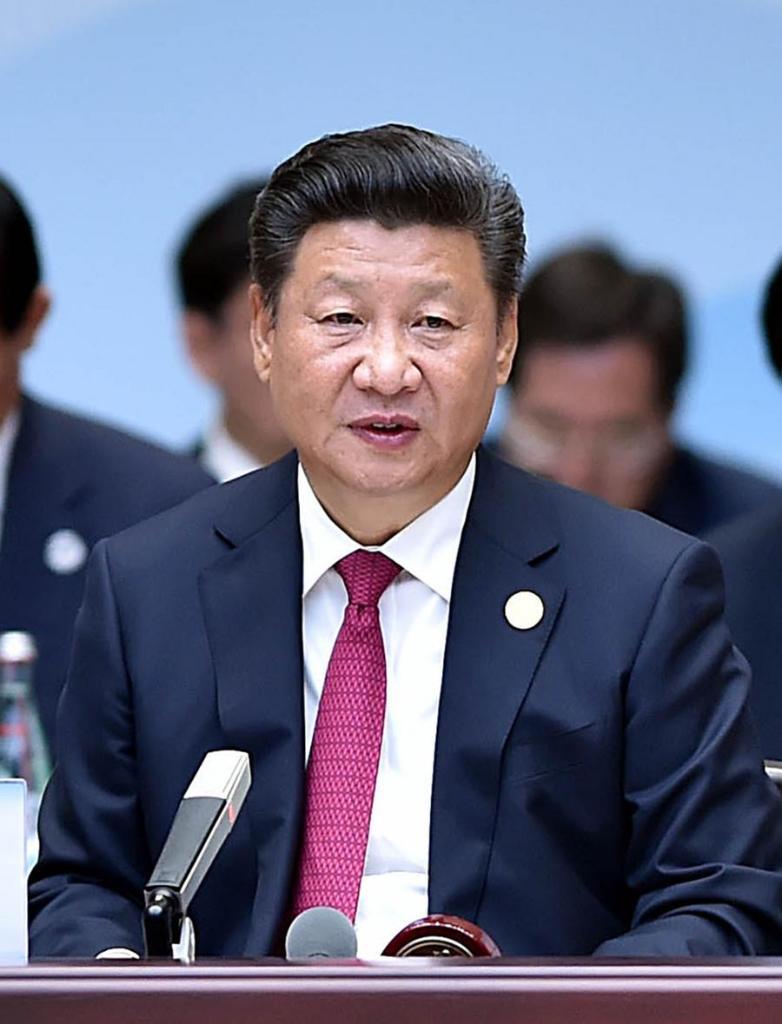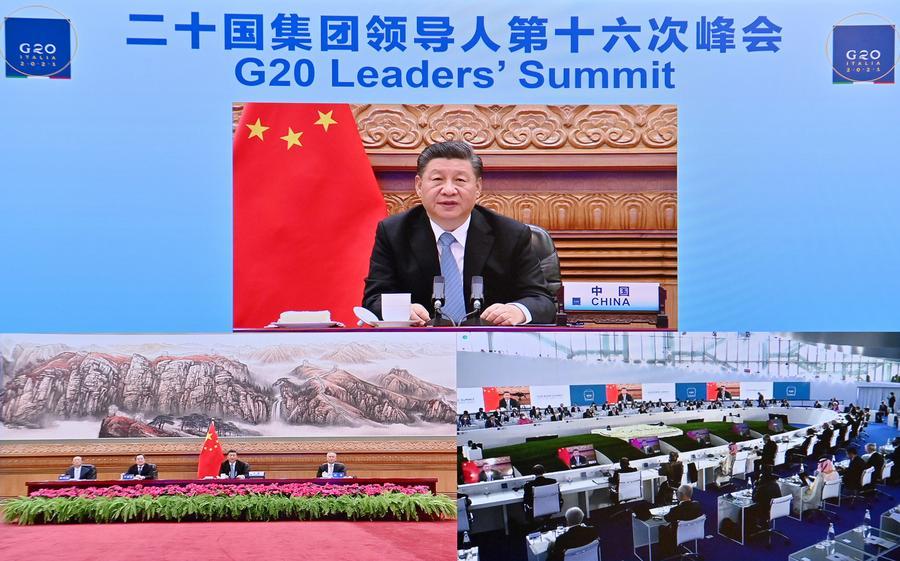How Xi drives G20 cooperation in global crisis

Chinese President Xi Jinping addresses the opening ceremony of the Group of 20 (G20) summit in Hangzhou, capital of east China's Zhejiang Province, Sept. 4, 2016. (Xinhua/Li Tao)
BEIJING, Nov. 17 (Xinhua) -- As a representative mix of the world's major economies, the Group of Twenty (G20) has become the premier forum the world looks up to today in moments of global economic turmoil and crisis.
With a thorough grasp of the G20's unique role, Chinese President Xi Jinping has consistently championed the G20's joint efforts to follow the spirit of sailing in the same boat and join hands to live up to their respective duty.
"All G20 members should take the responsibility inherent in being major international and regional players, and should lead by example in promoting development of all nations, improving the well-being for the whole mankind, and advancing progress of the entire world," he once said.
Now as Xi joins other leaders for the 19th G20 summit in Brazil, the international community is keen to see how they will address the great uncertainties troubling today's world, particularly what solutions China will propose for building a better future for all.
When G20 leaders gathered for their first summit in November 2008 in Washington, they were struggling to cope with an unprecedented global financial meltdown. By championing a collective drive, the group helped steer the global economy away from the brink of an abyss and put it onto the path of recovery.
Over the past few years, China has joined other G20 members in tackling another major crisis, the most serious global pandemic in a century and ensuing economic slump. This time the battle is even more onerous. As Xi observed, the impact was even worse than that of the 2008 maelstrom.

Chinese President Xi Jinping attends the 16th G20 Leaders' Summit via video link in Beijing, capital of China, Oct. 31, 2021. (Xinhua/Yue Yuewei)
To rejuvenate post-pandemic global economic recovery, Xi called on all G20 members to rise to the challenge, enhance international macro-economic policy coordination, jointly stabilize global industrial and supply chains, and reduce trade barriers, including tariffs.
"It is imperative that we apply the right prescriptions to address both symptoms and root causes of the problems we face," he said at the 2021 G20 summit.
Xi's multi-pronged measures "are systematic, comprehensive and focused," said Lu Feng, an emeritus professor of economics at Peking University. "They have enriched G20's policy toolkit, and enhanced its proactivity and foresight in governing global economy."
One of the key problems the G20 members jointly addressed was the debt burden that was straining low-income countries' resources for fighting the pandemic and safeguarding lives. In April 2020, the G20 announced a Debt Service Suspension Initiative (DSSI) to help vulnerable countries, an exceptional financial safety net that was extended through December 2021.
Under Xi's leadership, China implemented the G20's DSSI in all respects, and suspended the largest amount of debt service payment among all G20 members.
"China fulfilled its role fairly well as a responsible G20 stakeholder" in helping address African countries' sovereign debt problem, said a report by the China Africa Research Initiative at the Johns Hopkins University, a program dedicated to understanding the political and economic aspects of China-Africa relations.
